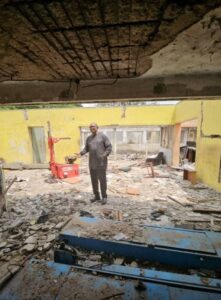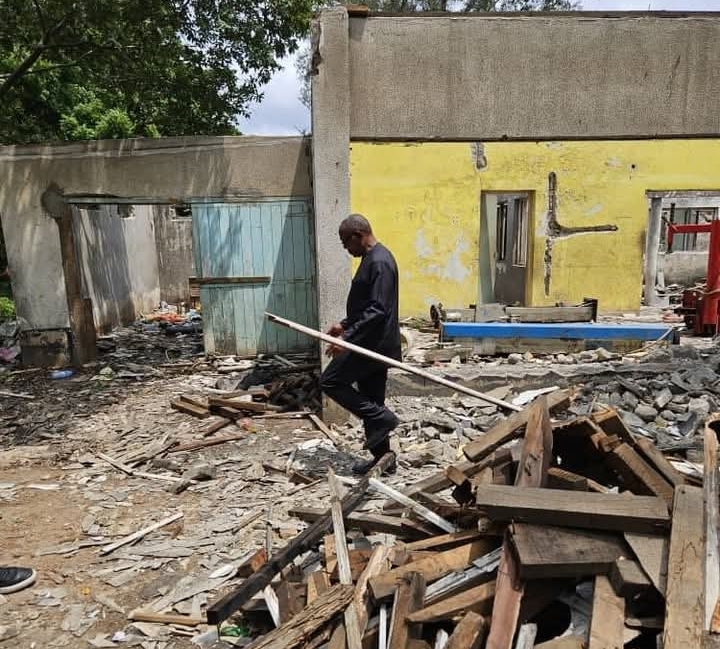A former presidential candidate has raised concerns over what he describes as the growing climate of lawlessness in the country after the property belonging to his younger brother was demolished in Lagos by the authorities.

In a detailed account shared with the media, the politician said his brother, who had just returned to Lagos from Port Harcourt, called him frantically on Wednesday morning to report that his company’s property in Ikeja was under demolition by unknown agents. Security men stationed at the scene denied him entry, informing him that the building had been under demolition since the weekend.
The affected building, reportedly owned by the brother’s company for over a decade, was being destroyed (according to him) without any demolition order, court permit, or formal service of notice, the politician claimed.
“I rushed to Lagos from Abuja after the call and went straight to the site. I was blocked from entering and had to plead with the security men. They claimed to have a court judgment, but when I asked to see it, the judgment was against an unnamed person and alleged squatters,” he said.
He questioned how a court could issue a judgment against an unknown party without any formal notification or trial involving the actual property owner. “This is nothing short of coordinated lawlessness and impunity,” he said. “No one was served. No names were listed. Yet, they brought in excavators and started destroying a building that had stood for over 15 years.”
Efforts to reach those behind the demolition proved futile. The site contractor claimed not to know who hired him and refused to provide contact information. The politician said he waited for hours, hoping someone would respond to his invitation to speak with him. No one did.
Two men eventually appeared, suggesting they go to a police station but failed to produce any demolition order or legal documentation backing the action.
Reflecting on the situation, the former Labour Party candidate said his personal experience mirrors what many Nigerians—especially small business owners and vulnerable communities—face every day. “If this can happen to someone with a registered company and legal documentation, what hope does the average Nigerian have?” he asked.
He also lamented Nigeria’s deteriorating image among investors, recalling a recent conversation with a businessman who said he was investing in Ghana, Senegal, and Benin Republic, but not in Nigeria. “He told me flatly, ‘Nigeria is a lawless country. Until we have laws that protect people, nobody will invest here.’ That hit me hard,” he said.
The politician, who has previously alleged persecution for his political ambitions, stated, “I know what I have been going through as a person in abuse of my human rights just because I contested a Presidential election, which I have the legitimate right to do.”
He concluded with a vow to advocate for a better Nigeria where the rule of law is upheld and the rights, lives, and properties of citizens are fully protected.

